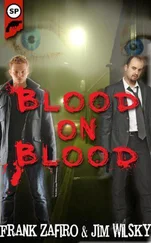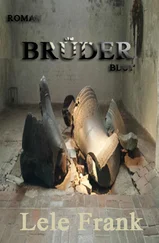Frank Tallis - Vienna Blood
Здесь есть возможность читать онлайн «Frank Tallis - Vienna Blood» весь текст электронной книги совершенно бесплатно (целиком полную версию без сокращений). В некоторых случаях можно слушать аудио, скачать через торрент в формате fb2 и присутствует краткое содержание. Жанр: Исторический детектив, на английском языке. Описание произведения, (предисловие) а так же отзывы посетителей доступны на портале библиотеки ЛибКат.
- Название:Vienna Blood
- Автор:
- Жанр:
- Год:неизвестен
- ISBN:нет данных
- Рейтинг книги:3 / 5. Голосов: 1
-
Избранное:Добавить в избранное
- Отзывы:
-
Ваша оценка:
- 60
- 1
- 2
- 3
- 4
- 5
Vienna Blood: краткое содержание, описание и аннотация
Предлагаем к чтению аннотацию, описание, краткое содержание или предисловие (зависит от того, что написал сам автор книги «Vienna Blood»). Если вы не нашли необходимую информацию о книге — напишите в комментариях, мы постараемся отыскать её.
Vienna Blood — читать онлайн бесплатно полную книгу (весь текст) целиком
Ниже представлен текст книги, разбитый по страницам. Система сохранения места последней прочитанной страницы, позволяет с удобством читать онлайн бесплатно книгу «Vienna Blood», без необходимости каждый раз заново искать на чём Вы остановились. Поставьте закладку, и сможете в любой момент перейти на страницу, на которой закончили чтение.
Интервал:
Закладка:
“Who is it?” came a muffled voice.
“Police. Open the door,” said Rheinhardt.
There were a number of sounds. Bolts being drawn back, chains rattling, and a key turning. Finally the door was unlocked. Rheinhardt could not see the features of the man who'd opened it. The only significant source of light was coming from a paraffin lamp behind him.
“Herr Krull?”
“Yes.”
“Detective Inspector Rheinhardt-and my assistant, Haussmann. May we come in?”
The man's head moved quickly, looking at Rheinhardt first, then at Haussmann, then back again to Rheinhardt.
“You're not wearing uniforms. How do I know whether you're with the police or not? You could be anybody.” Krull's accent was rough and hard-edged. There was no music in his German, which was spoken largely from the back of the throat. He could have been hawking rather than speaking.
Rheinhardt sighed and took out some identification documents. Krull examined them for a few seconds and nodded.
“Very well, then-come in. You can't be too careful here, believe me.”
Krull ushered them in. The room was little more than a hovel. A table, a chair, and a small stove. On the table was a large leather-bound volume-it looked like a Bible. Through an adjoining door could be seen a shadowy bedroom: a pallet lay on the floor and there was an oversize wardrobe. The air was fetid. Rheinhardt noticed a figurine of the Virgin Mary in the recess of a tiny square window. Krull limped to the chair and sat down.
“What is the matter with your leg?” asked Rheinhardt.
“Clubfoot,” said Krull.
“Is it painful?” asked Rheinhardt.
“Can be,” said Krull.
Rheinhardt took a step forward and made sure that there was nothing that Krull might use as a weapon in easy reach.
“So what's this about, eh?” Krull demanded.
Observing the irate little man, Rheinhardt could not determine whether it was more appropriate to feel disgust or pity. Among the variety of human types, Krull was a most unfortunate specimen. A criminologist sympathetic to Galton and Lombroso's ideas would immediately identify Krull as a murderer. His features were entirely atavistic: low forehead, ears like jug handles, and a bony ridge over the orbits of his sunken eyes. A flat nose and prognathous jaw completed the simian ensemble.
“We are conducting a murder investigation, Herr Krull.”
“I don't know anything about any murders.” He shook his head.
“Perhaps not, but I believe that you may be able to help us with our inquiries.”
“Believe what you like-but I know nothing.”
Haussmann slipped discreetly behind Krull's chair; however, he was not sufficiently discreet to escape Krull's notice. The little man glanced over his shoulder, and looked anxiously back at Rheinhardt.
“What are you dong here? What do you want with me?”
“Herr Krull-I am sure you are aware of the recent atrocity that took place in Spittelberg.”
“I keep myself to myself.”
“Well, not entirely. I understand that you are well acquainted with Herr Jutzet.”
Haussmann had discovered another religious image and he held it up briefly behind Krull's back. It was a small woodcut of Saint Francis of Assisi offering his benediction.
Krull's jaw seemed to project out even farther.
“Herr Jutzet sent you?”
“It was he who gave us your address. Incidentally, the good landlord is also somewhat anxious that you should pay him a visit in order to abrogate your pecuniary embarrassment.”
“What?”
“The matter of your debt, Herr Krull. The sum of four krone was mentioned.”
“Three krone. He's added another krone as interest. The man's worse than a Jew. He probably is a Jew.”
Rheinhardt looked over Krull's shoulder. Haussmann had stepped backward into the bedroom.
“Herr Krull,” Rheinhardt continued. “Earlier today I spoke to a gentleman of your acquaintance, a certain Herr Chalupnik.”
“Who?”
“Herr Chalupnik. An old gentleman. He often waits for his daughter under the statue of Saint Joseph.”
Krull sniffed. “I don't know his name. I presume you mean the old Czech.”
“Yes. Big hat, long beard-walks with a stick. You do know him.”
“I wouldn't pay much attention to what he says.”
“Why not?”
“He's senile.”
“He might be old, and his memory might be failing, but you, Herr Krull, seem to have made quite an impression on him.”
Haussmann opened the door of the wardrobe. He had tried to do it quietly, but the door emitted a loud creak.
Krull turned around abruptly.
“What are you doing? Get away from there. Get away from there at once.”
The grotesque little man raised himself up and started for the bedroom.
“Herr Krull,” Rheinhardt called. “Please remain seated.”
Krull ignored the inspector and rushed toward the younger detective; however, by the time Krull reached Haussmann, a bundle of clothes had already tumbled out of the wardrobe and now lay on the floor. Even in the half-light, stains were clearly visible.
“Sir…,” Haussmann called.
“You don't understand,” said Krull. “You're making a mistake. You're making a big mistake.”
Rheinhardt entered the bedroom and hunkered down next to the stinking pile of clothes. He lifted a shirt. The material was stiff and gritty with crystals of dried coagulated blood.
18
KRULL HAD BEEN ESCORTED from his cell by two constables who now stood guard outside the specially prepared room. On arrival, Liebermann had instructed Krull to lie down on the divan. The little man immediately protested.
“Herr Krull,” said Rheinhardt, “judges are not kindly disposed toward defendants who have failed to cooperate with the police. This is something you might care to consider before making a stand.”
Krull swore under his breath and gracelessly mounted the divan. His apelike features were not matched by any simian agility.
Liebermann drew up a chair and placed it at the head of the divan-out of Krull's sight. Krull jerked his head back.
“Please, Herr Krull,” said Liebermann. “Do not attempt to look at me. I want you to look straight ahead, or close your eyes-whatever you find more comfortable.”
“Comfortable?” Krull repeated. “You must be a comedian, Herr Doctor.”
Liebermann crossed his legs, placed his elbow on the chair arm, and allowed his head to rest against his right hand. He began by taking a history-just as he might with a patient being admitted to the hospital.
Krull had been born and raised in the country, but had come to Vienna to seek his fortune. Like many before him, he had soon discovered that the great city distributed its bounty capriciously. Not everyone found employment and amassed wealth. Krull spent his first winter in a charitable shelter, and the next three years in a men's hostel in Brigittenau. His companions were mostly laborers and handymen. Like him, the majority of them came from lower Austria, but Krull was also compelled to share a dormitory with several “lying Croats,” “greedy Hungarians,” and the odd “filthy Russian.” He moved first to Landstrasse and then to Ottakring, before eventually securing the comparative luxury of his dismal apartment on the edges of Spittelberg. During his many years of abject poverty, he had come under the influence of a Catholic priest called Father Anselm, who had become his spiritual mentor.
“You should find him!” Krull cried. “He'd speak up for me. He'd tell you what a big mistake you've made!”
Liebermann's index finger stirred. He tapped his temple three times and asked, “Why did you visit Madam Borek's brothel, Herr Krull?”
The little man grumbled something inaudible and finally replied, “I never visited Madam Borek's brothel.”
Читать дальшеИнтервал:
Закладка:
Похожие книги на «Vienna Blood»
Представляем Вашему вниманию похожие книги на «Vienna Blood» списком для выбора. Мы отобрали схожую по названию и смыслу литературу в надежде предоставить читателям больше вариантов отыскать новые, интересные, ещё непрочитанные произведения.
Обсуждение, отзывы о книге «Vienna Blood» и просто собственные мнения читателей. Оставьте ваши комментарии, напишите, что Вы думаете о произведении, его смысле или главных героях. Укажите что конкретно понравилось, а что нет, и почему Вы так считаете.












